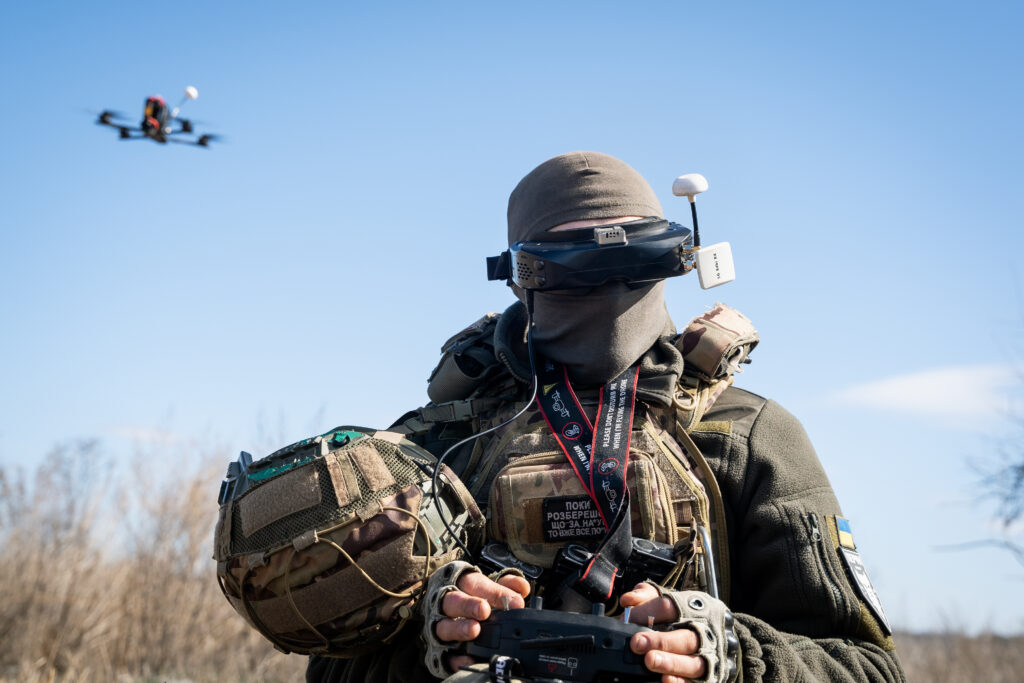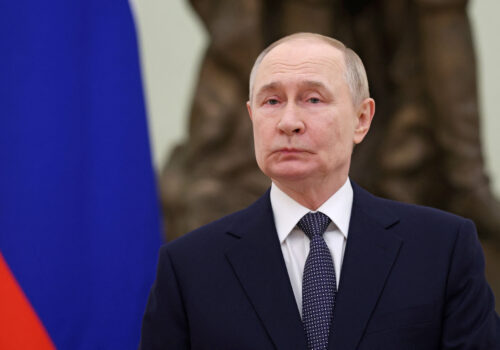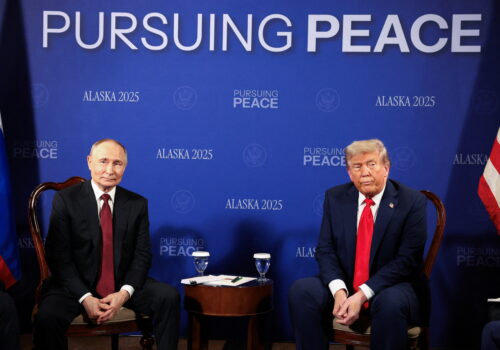On the outskirts of Kharkiv in northeastern Ukraine, Ukrainian electronic warfare teams are deploying home-grown systems that automatically detect and suppress Russian drones. Along the southern front, domestically developed observation drones are giving Ukrainian troops real-time visibility in contested airspace. These are not prototypes; they’re battle-proven Ukrainian technologies saving lives on a daily basis and shaping the future of warfare.
Yet as Ukraine cements its reputation as a defense tech powerhouse, a strategic risk is emerging. Without robust intellectual property (IP) protections, Ukraine may lose control of the very breakthroughs that are currently helping to defend the country on the battlefield. Ukraine could potentially win the war itself and secure national survival, only to lose the innovation economy that should underpin its recovery.
Stay updated
As the world watches the Russian invasion of Ukraine unfold, UkraineAlert delivers the best Atlantic Council expert insight and analysis on Ukraine twice a week directly to your inbox.
Wartime urgency creates pressure to sacrifice IP sovereignty. Startups under fire need capital, global market access, and production capacity which foreign investors and international partners can provide. But too often, these deals require handing over IP rights. What looks like a lifeline can, in fact, be a strategic loss.
This leaves Ukraine exposed to a quiet leakage of its designs. Meanwhile, the absence of a strong domestic IP framework risks pushing entrepreneurs to register patents and commercialize outside the country, where protections are stronger and funding is more accessible. The result could be both a brain drain and an innovation drain, hollowing out Ukraine’s defense tech sector just as it proves its global potential. Instead of becoming an international hub, Ukraine risks being relegated to the status of pipeline for foreign defense industries.
The case for IP sovereignty is not only about Ukraine’s economy and national security; it is also about the future resilience of Europe and NATO. For Ukraine, retained IP means royalties, licensing revenues, and a steady funding stream for reconstruction. It signals to investors that Ukraine is not just a wartime incubator but a serious innovation ecosystem. Most importantly, it preserves national sovereignty. Control over sensitive technologies ensures Ukraine is not permanently dependent on foreign suppliers for security.
For Kyiv’s allies, Ukrainian IP is also an important asset. The United States is currently exploring a multi-billion dollar joint drone production deal with Ukraine. But if Ukraine cannot retain ownership, partners risk relying on fragmented supply chains and losing access to innovation. Europe’s Defense Industrial Strategy, launched this year, calls for a resilient continental base. That goal will be undermined if Europe’s most battle-tested and innovative nation loses control of its own technologies.
Eurasia Center events

Protecting IP involves more than goodwill. It requires policy, legislation, and institutional design. Every foreign aid package and licensing deal should include explicit protections for Ukrainian IP ownership. Likewise, technological solutions co-developed with international partners must not result in the wholesale transfer of rights.
Ukraine’s current plan to relax restrictions on some categories of arms exports is good news. Export barriers force many firms into joint ventures (JVs) or licensing arrangements that often strip away their IP protections. Enabling direct exports would ease this dependency on JVs or licensing, reducing both complexity and IP risk, as well as the danger of leakage. Ukraine should encourage co-production and investment, but on terms that guarantee domestic equity and enforceable IP rights.
Currently, the Ukrainian government is closely monitoring its top innovators to prevent IP leaks abroad. Some companies have sought to incorporate outside of Ukraine in order to free themselves from these shackles, but have encountered problems related to unfair IP structuring. One solution could be greater intergovernmental cooperation. This could allow Ukraine to access external capital and expertise while keeping control over core technologies.
Tech parks and defense incubators should anchor talent domestically, providing access to funding, testing grounds, and mentorship. With 40,000 trained drone pilots and a new generation of AI engineers, Ukraine could benefit hugely if the country can create the right climate to build global companies at home. Speed is also important. Traditional patent offices often move too slowly for battlefield innovation. Ukraine needs a dedicated defense IP office to fast-track protection, address dual-use complexities, and guard against theft or predatory licensing.
The Israeli experience provides a potentially useful model for Ukraine. Decades of conflict have forced Israel to develop technologies with immediate battlefield relevance. Crucially, Israel has managed to retain IP sovereignty, even when foreign funding was involved, and has built an ecosystem where defense innovation feeds into global competitiveness.
Europe also offers lessons. Airbus shows how multinational collaboration can preserve shared IP while scaling production across borders. The overall objective is clear: Ukraine should be positioned as a central node in Europe’s defense industry and not just as a subcontractor.
Ukraine’s battlefield innovations are saving lives today, but they can also lay the foundations for tomorrow’s Ukrainian economy. Without IP sovereignty, Ukraine risks becoming a laboratory for others. With the right frameworks, Ukraine can transition from its current status as a war-driven exporter of ideas to become a global defense industry innovation leader. This can only happen if the country’s IP assets are protected.
Andriy Dovbenko is the founder and principal at UK-Ukraine TechExchange.
Further reading
The views expressed in UkraineAlert are solely those of the authors and do not necessarily reflect the views of the Atlantic Council, its staff, or its supporters.

The Eurasia Center’s mission is to enhance transatlantic cooperation in promoting stability, democratic values, and prosperity in Eurasia, from Eastern Europe and Turkey in the West to the Caucasus, Russia, and Central Asia in the East.
Follow us on social media
and support our work
Image: A Ukrainian soldier performs a trial with an FPV drone in the region of Kharkiv, Ukraine, on March 19, 2025. (Photo by Alfons Cabrera/NurPhoto)




